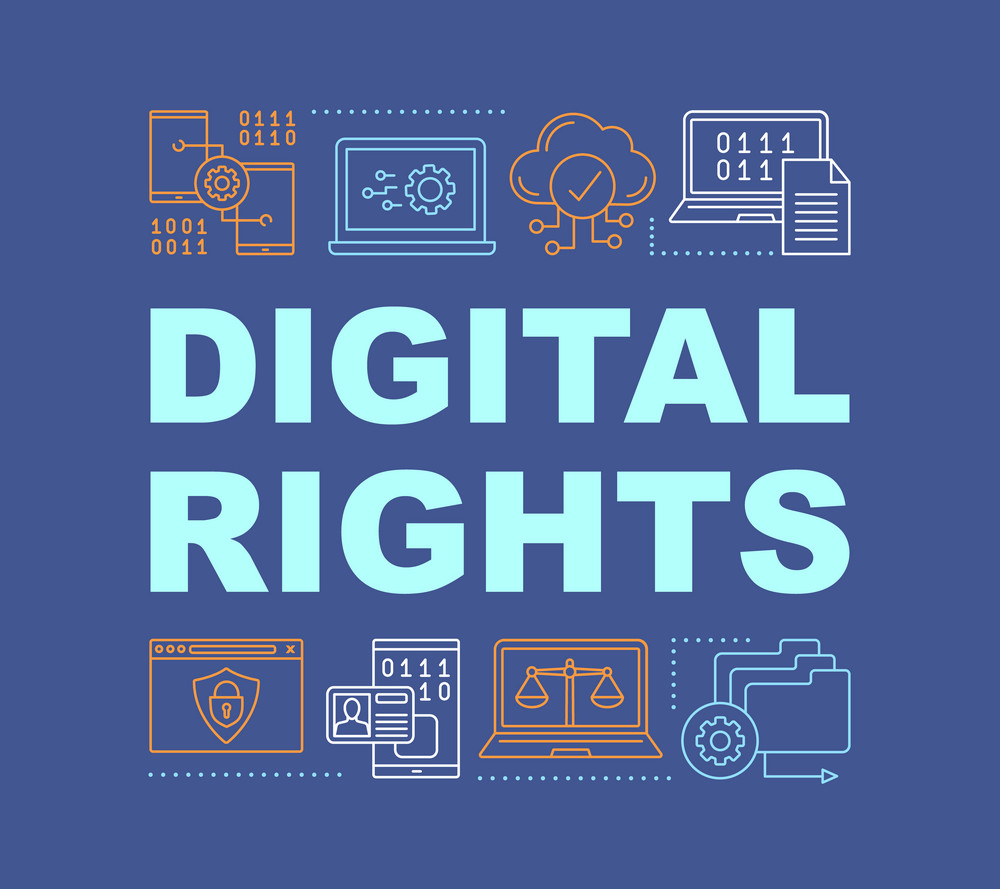Digital rights can be defined as the protection of common human rights like security, privacy, and access in digital spaces, however, the terminology encompassing the realm of “digital” is significantly different (Azali, 2020). These rights embrace standard freedoms that grant people safe access to digital content with undeserved prejudice (UNESCO, 2019). As digital platforms influence large portions of social participation, debates regarding digital rights protection have increased in the past several years, according to the United Nations Educational, Scientific and Cultural Organization (2019). Sadly, these rights are habitually violated, violations like privacy infringement, free speech censorship, and mass audio/video recordings, for example (Bellasio et al., 2021).
Organizations such as the Electronic Frontier Foundation (2021) advocate digital rights for online users and encourage them to maintain basic human rights as new technologies are constantly emerging. Emphasizing rights such as strong data privacy, online safety for children, and accountability, the Electronic Frontier Foundation aims to educate the public with information to keep users protected as they engage with online platforms (Cope et al., 2023).
It becomes a challenge for software creators, website developers, and policymakers to calculate the human rights aspect against user security and economic progression (Srivastava, 2023). The discussion must occur that still allows innovation and advancements to occur while limiting the intrusion of rights. Digital rights improvement needs to be the result of careful dialogues between all parties that create technological environments that endorse human rights while still being effective in society.
References
Azali, K. (2020). Coconet: What are digital rights? Engage Media. https://www.apc.org/en/news/coconet-what-are-digital-rights
Bellasio, J., Slapakova, L., Quimbre, F., Stockwell, S., & Silfversten, E. (2021). Human Rights in a Digital Age. https://www.rand.org/content/dam/rand/pubs/research_reports/RRA1100/RRA1152-1/RAND_RRA1152-1.pdf
Cope, S., Mackey, A., & Kelley, J. (2023). Protecting Kids on Social Media Act: Amended and still problematic. Electronic Frontier Foundation. https://www.eff.org/deeplinks/2023/11/protecting-kids-social-media-act-amended-and-still-problematic
Electronic Frontier Foundation. (2023). Electronic Frontier Foundation. https://www.eff.org
Srivastava, D. (2023). Balancing innovation and regulation: The role of technology policy in the digital age. Linkedin.com. https://www.linkedin.com/pulse/balancing-innovation-regulation-role-technology-age-srivastava/?trk=article-ssr-frontend-pulse_more-articles_related-content-card
UNESCO. (2023). Bridging the Digital Divide and Ensuring Online Protection. UNESCO. https://tinyurl.com/ycbdyezc

